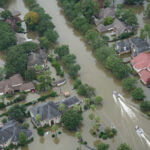
It’s not uncommon for people to engage in high-risk hobbies or activities from time to time. Actively participating in such activities, however, can impact your life insurance coverage. Understanding how life insurance policies can be affected by high-risk behaviors is incredibly important.
While most people are aware that one’s profession can provide access to life insurance coverage options, many are unaware their hobbies can have an impact. Interests such as painting or collecting are unlikely to have an effect; however, higher-risk hobbies like cliff jumping, deep-sea diving, and skydiving can directly impact life insurance coverage.
Life insurance companies conduct in-depth research into a potential policyholder during the underwriting process, including an evaluation of factors such as age, health, weight, family health history, career, and hobbies.
After assessing this information, the carrier will assign a policyholder a rating that determines their premium. Participating in hobbies with a high likelihood of being dangerous increases one’s odds of dying prematurely; therefore, insurers can charge you more or refuse to insure you altogether, should you choose to put yourself at risk.
What Constitutes A High-Risk Activity?
Some of the riskiest activities that can affect insurance policies include:
Skydiving
Aviation sports such as skydiving rank highly among activities that can impact life insurance coverage. Skydivers run the risk of an airplane malfunction, parachute failure, collision, or a botched landing. Insurance rates and coverage options for those who skydive will often depend on factors such as experience level, the number of jumps typically made, whether or not one is a professional, and the safety level of the jumps made.
Scuba diving
Though scuba diving may seem not seem risky when compared to skydiving, it comes with its own risks. Everything from equipment malfunctions to drowning and decompression sickness are risks associated with scuba diving. Whereas more frequent skydiving can make one an expert and defray some of the added costs, when it comes to scuba diving, lots of experience can actually make for a riskier policyholder.
Mountain climbing
If a rock-climbing hobby takes someone off of a rock-wall and onto dangerous terrain, it can affect their life insurance coverage. Much like with skydiving, a number of determining factors are assessed to determine a person’s risk with regard to mountain climbing. These factors can include experience level, frequency of climbs, areas climbed, length of rope used, and Yosemite Decimal System grade (YDS), which determines the difficulty of climbs.
Racing
Racing cars is another high-risk activity that can affect life insurance coverage. Though safety measures within racing are improving, it still poses numerous safety risks. Life insurance companies will review a racer’s age, level of experience, frequency of racing, driving record, the car’s top speed, and engine capacity in determining the level of risk.
Texas Insurance Claims Attorneys
Dealing with insurance companies can be difficult. If your insurance company has unreasonably denied, delayed, or disputed your life insurance claim, contact the experienced attorneys at Raizner Law today for a free consultation.


